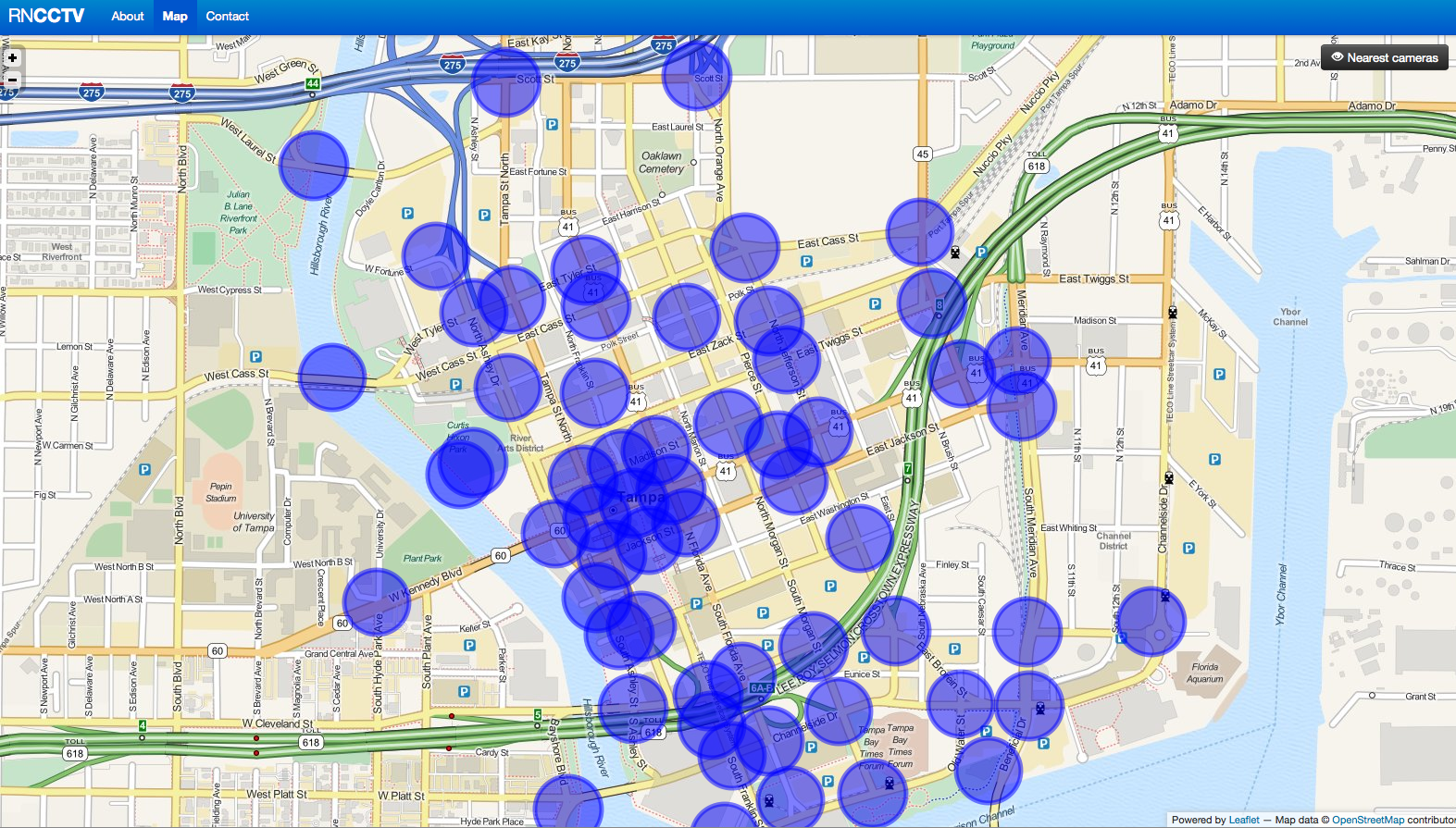The surveillance cameras left behind after the Republican National Convention last year are proving to be effective at solving crimes and tamping down criminal activity.The Trib goes on how the cameras have helped solve several crimes, the images are recorded and erased every thirty days (except when?), etc. Please read the whole thing if you have not.
Tampa police told the City Council this week that the cameras were directly responsible for the arrest of an assault suspect, and that they have been helpful in solving burglaries. Their visibility downtown may also be responsible for deterring criminal behavior like shoplifting.
Clearly, the benefits of having the cameras outweigh the privacy concerns raised by the American Civil Liberties Union and others when the cameras remained after the RNC left town.
No doubt the surveillance
 |
| Surveillance camera |
 |
| Tampa 2012 RNC Surveillance Cameras |
In the current surveillance state, in addition to surveillance cameras, we have:
- NSA with our phone records
- DEA with even more phone records
- IRS with our financial records
- IRS collecting more information on our health access
- IRS with more data than ever before
- CFPB with our credit card transactions
- IRS abusing disfavored political groups
- Red light cameras
- Toll booth tracking
- Smartphone tracking
- Automatic License Plate Recognition
Lots of people are watching you. If not directly with surveillance cameras, they can monitor you with Big Data and analytics. They can know where you are, where you've been, where you're going, who you know, who you know knows who, what you buy, ...
And that's just some of the government surveillance.
Businesses are tracking you as well on the web and in their businesses trying to figure out ways to get you to buy, and get you to buy more. Again, Big Data is part of the equation.
Is there a limit?
The Trib states:
But privacy concerns now pale in comparison to security concerns. People in public places have no expectation of privacy in this increasingly dangerous post-9/11 world. Businesses routinely use cameras, and individuals frequently use their smartphones to record public events.
The Boston Marathon bombing earlier this year pretty much ended the privacy debate over the placement of security cameras at large public gatherings.
The RNC established Tampa as a city capable of hosting a large national event with significant security concerns. It proved to be a public relations boon and a financial windfall for the city.Perhaps. The Trib is mixing private choices in how we interact with businesses and our use of smart phones, and public safety. Private choices are activities we can opt out of if we're concerned about a business that may overreach and compromise our privacy for their benefit. We do make compromises around conveniences and benefits ... and safety ... over privacy all the time. We can do so with many business activities. Maybe not enough, but many companies are giving us control and choice over our data.
Although unintended, its most enduring legacy may be a safer downtown.
Government data collection is harder to control. Let us know how well you make out the next time you chose to not fully share your financial information with the IRS.
We are also seeing with the NSA spying scandal the federal government has required Verizon, AT&T, Google, Facebook, and others to provide all sorts of data on their behalf. Privacy and the use of our data are likely to get murkier before it clears up.
The privacy debate is much larger than just security cameras at large public gatherings. The recent news around the NSA spying and web data collection and security breeches has only made privacy our our data more of a concern.
But who watches the watcher?
If this additional surveillance is such a good idea, then perhaps we can turn some of this surveillance state on the state. What if law enforcement was being watched as well?
A watched cop is a better cop. That's the point that Ron Bailey of Reason makes. That's good as far as it goes, but the surveillance state today is more than a cop on the beat wearing a video camera.
 |
| Video Surveillance monitoring center |
It includes camera surveillance all over the municipality, monitored and collected by computers, maintained and analyzed by more computers, and data and video analytics specialists... and some 3rd party contractors, consultants, and data and analytics providers.
In today's surveillance state, we need to watch all the watchers. That includes those behind the locked doors crunching through the data. More video for them? More other monitoring and auditing and compliance such as a Dodd-Frank for our watchers? I'm not sure I have an exact answer.
But if surveillance cameras are good to keep us in control, perhaps we need something similar to ensure our watchers are in control.
No comments:
Post a Comment